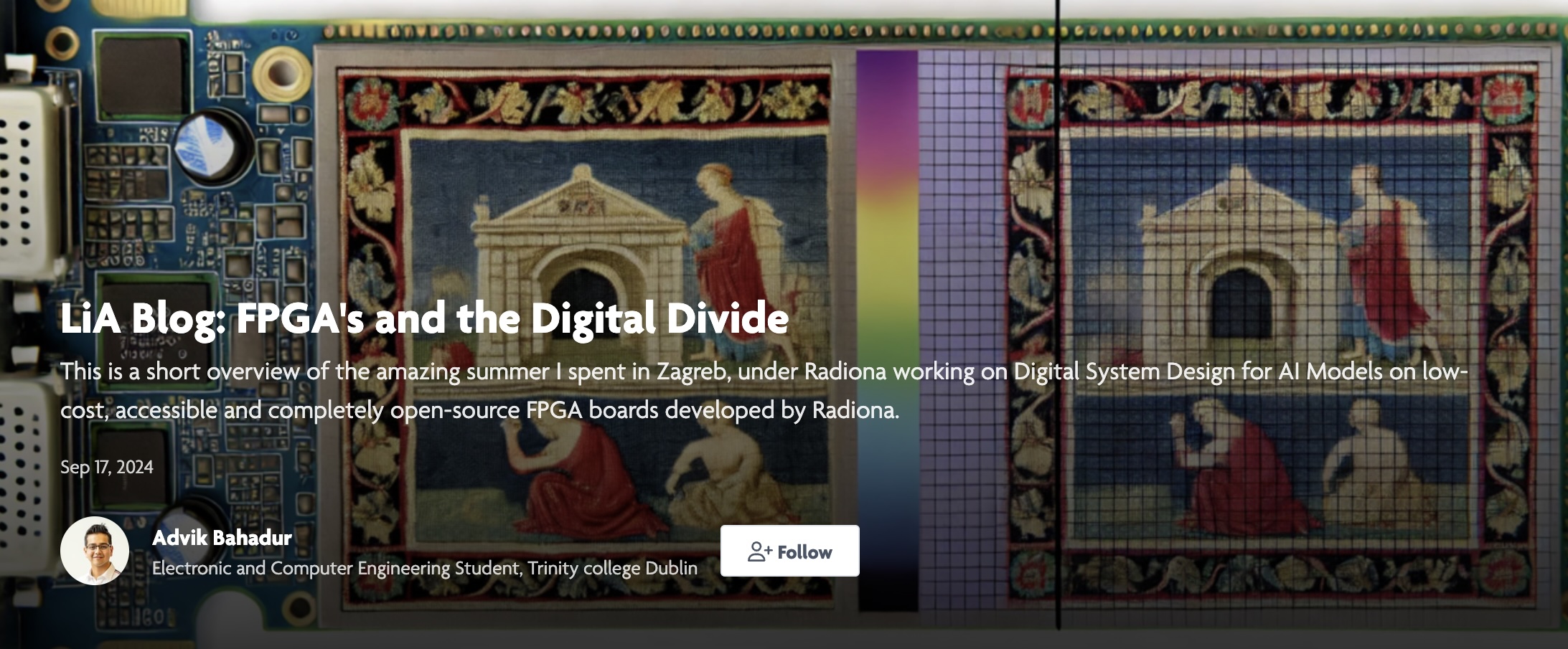Going to another country. Experiencing different cultures. Leading a "for global good" project for two months. It's the kind of experience that really excites you.

This summer in June, I embarked on a six-week journey to Zagreb, Croatia, to dive into the world of open-source hardware development with some of the brightest and most innovative minds. Without going into too many technical specifics, the project focused on developing resources for new developers working with an open-source FPGA board. This board is designed to address the digital divide in the hardware space.
I'm incredibly grateful to Radiona.org, the fantastic organization that hosted me and provided this amazing opportunity. I couldn't be more thankful.
My first two weeks in Zagreb were simply amazing. I spent time exploring and experiencing the city, touring the upper town of Zagreb and taking in everything from the architecture to the food and music. I also spent many hours at Radiona's brilliant lab—"Tech Heaven," as I liked to call it—equipped with all sorts of machinery, 3D printers, tools, sensors, and hobbyist electronics gear.
I started working with the ULX3s FPGA board, along with camera sensors and visual peripherals. For those less tech-savvy, all I can say is: it was really cool!
And believe me, it only got cooler. I was invited to the Electric Wonderland Camp, held at a Lord of the Rings-themed campsite near Gospic, Croatia, and organized by Radiona as well. During the week, I interacted with "hackers" from around the world, attending exciting workshops on tech, art, music, and fitness. I even participated in a Wi-Fi Foxhunt, lived in awesome Hobbit holes, enjoyed incredible food, and formed great friendships with some truly talented people. I learned a lot, from contemporary music to laser cutting.
After that, I returned to the sunny and hot capital for the second half of my stay. My overall goal for this leadership-in-action (LiA) project was to implement a super-resolution Convolutional Neural Network on the FPGA board. This has significant applications in machine learning and can serve as a reference for similar projects.
Given the open-source nature of the project, I relied on open-source toolchains and software. While this approach greatly benefited the community, I discovered that these tools weren't as advanced as the ones available on closed-source platforms, which made the implementation more challenging. During the second half of my time in Zagreb, I had to invest many hours in familiarizing myself with the platform, learning more advanced techniques, and navigating the added complexity.
Throughout this process, I learned a lot—especially the challenges developers face when working with current open-source software compared to paid alternatives. This experience underscored the impact that software availability has on the digital divide in the hardware space, limiting further development in this area.
I had not imagined myself sitting in the lab till the end of the last day, finishing my super resolution implementation. But so is the nature of such complex projects. I found many a roadblock through my journey to get there, but I was extremely joyous to have completed all the set out goals for this project.
I got to make my little contribution against this war on the digital divide, which is so prominent in this world. Furthermore, I was given the amazing opportunity to develop energy efficient and scalable AI, Deep learning solutions on hardware, under the guidance of the most amazing team at Radiona. I cannot be more grateful for the opportunity that was presented to me through this another Laidlaw experience.
Thank you for reading!
Advik Bahadur,
17 September 2024
Dublin, Ireland
(With permission republished from Laidlaw Scolars: https://laidlawscholars.network/posts/lia-blog-fpga-s-and-the-digital-divide)
